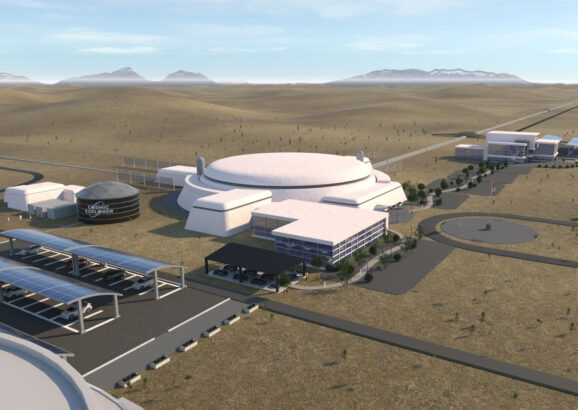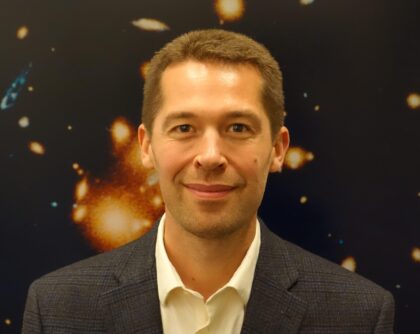Matthew Evans
Research Interests
Prof. Evans’ research is focused on improving the current generation of gravitational-wave detectors, while paving the way for next generation observatories. His lab-scale research projects are aimed at developing low thermal noise coatings, and enhancing control of the quantum-optical state of gravitational-wave interferometers (e.g., through the use of frequency dependent squeezing).
Biographical Sketch
Prof. Evans received a B.S. in Physics from Harvey Mudd College in 1996 and a Ph.D. from California Institute of Technology in 2002. He worked on LIGO and Virgo until 2007, and then came to MIT as a research scientist working on the Advanced LIGO design. Prof. Evans moved to his current position at MIT in January 2013, at which point his research group began work on new technologies to improved Advanced LIGO sensitivity. He currently leads the US effort to develop a next-generation gravitational-wave detector known as Cosmic Explorer.
More info:

A bigger, better space-ripple detector
The MIT-led Cosmic Explorer project aims to detect gravitational waves from the earliest universe.
Awards & Honors
- 2019 // New Horizons in Physics Prize (with Dr. Lisa Barsotti and Prof. Rana Adhikari) "for research on present and future ground-based detectors of gravitational waves."
- 2019 // Appointed MathWorks Professor of Physics
- 2019 // American Physical Society Fellow "for critical contributions to development of advanced gravitational-wave detectors as well as for developing techniques to enable further improvements in detector sensitivity and for leading community efforts to design future large-scale ground-based detectors."
- 2016 // Special Breakthrough Prize (awarded to LIGO Scientific Collaboration)
- 2016 // Gruber Cosmology Prize (awarded to The LIGO Discovery Team) "for the first detection of gravitational waves."
Key Publications
-
Matthew Evans, et al. “A Horizon Study for Cosmic Explorer: Science, Observatories, and Community.” (2021).
-
McCuller, L. et al. “Frequency-Dependent Squeezing for Advanced LIGO“. Phys. Rev. Lett. 124. (2020): 171102.
-
Tse, M. et al. “Quantum-Enhanced Advanced LIGO Detectors in the Era of Gravitational-Wave Astronomy“. Phys. Rev. Lett. 123. (2019): 231107.
-
Gras, S. et al. “Direct measurement of coating thermal noise in optical resonators“. Phys. Rev. D 98. (2018): 122001.
